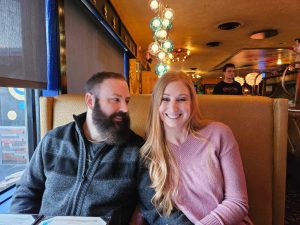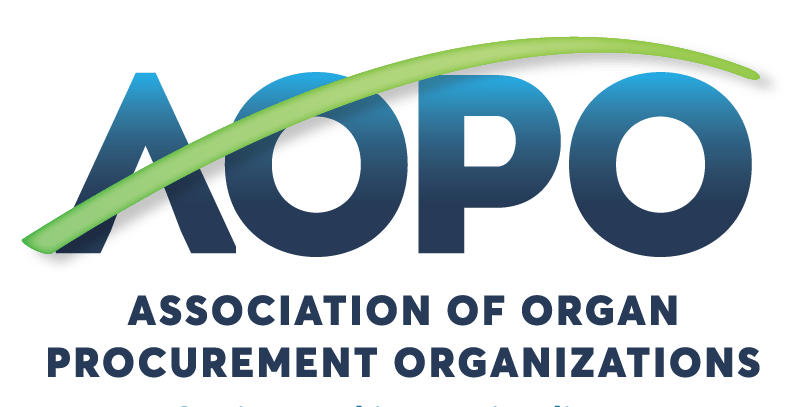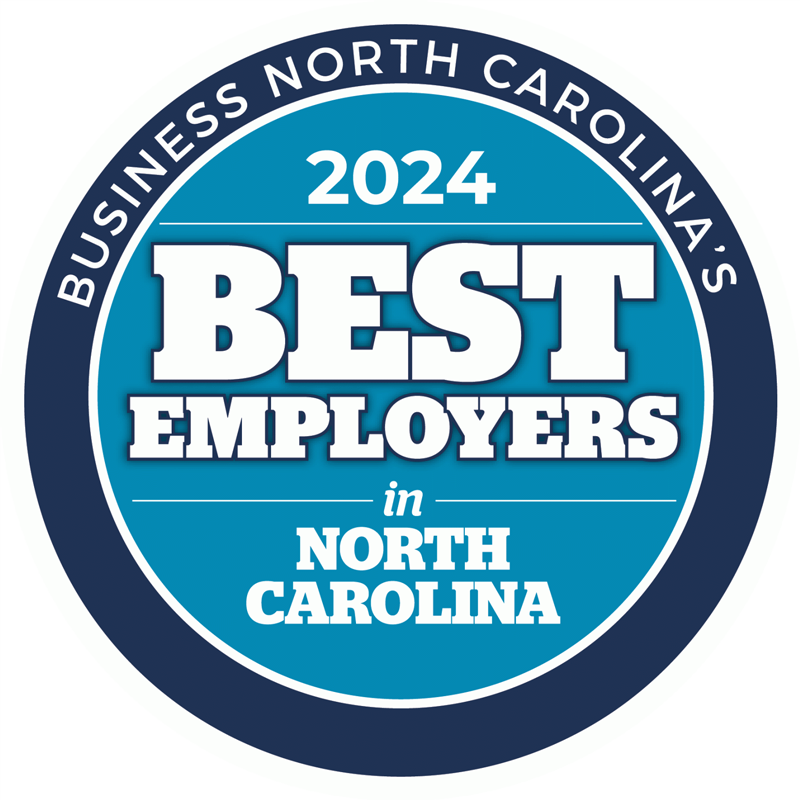For those unfamiliar with the world of organ donation, the abundance of acronyms—especially regarding job titles—can be both overwhelming and confusing. Roles within an organ donation and tissue recovery organization, such as CRCs (community relations coordinators), ODCs (organ donation coordinators), and FSCs (family support coordinators) often hold a bit of mystery. Recently, we had the pleasure of speaking with Lorelei Gregory, who shared insights about her experiences as an FSC — one of the most sensitive and impactful positions here at HonorBridge.
Can you share your career journey and what led you to become a Family Support Coordinator at HonorBridge?
While I was working my way through college, I was an Analyst in the Discount Window at the Federal Reserve Bank in Dallas for about six years. It was an amazing place to work, but I knew in my heart it was not my calling. I found myself working in victim’s services, helping those who had experienced crimes. I worked at Victims Outreach and Hope’s Door, supporting victims who had lost a loved one to homicide or had experienced sexual assault or domestic violence, and ran a suicide prevention crisis line. Unfortunately, many smaller nonprofit agencies tend to lose funding and shut down which breaks my heart because their services are so needed. When I saw the posting for a Family Support Coordinator in Dallas it felt like a perfect fit for my background. I later relocated to North Carolina and started with HonorBridge in 2016 and have been a Family Support Coordinator for over a decade now.
What are the primary responsibilities of a Family Support Coordinator at HonorBridge?
We are the voice of the waitlist, advocating for those needing an organ and asking for lifesaving gifts on their behalf. We’re also a source of comfort for families and act as their guide throughout this process, so it’s a huge responsibility. In addition, we closely collaborate with our hospital partners who many times have known a family a lot longer than we have and are disheartened to lose a patient; we offer a space of support and healing for them as well.
Can you describe a typical day in your role?
There’s no typical day! Every day is different, every story is different, every donor is different, and every family and hospital are different. We work three 16-hour days a week, starting with a huddle call in the morning to discuss the day’s activities and where we’re needed. We might work with families all the way through the process, from start to finish, or be assigned to multiple hospitals based on the needs of the day.
What are the most important skills needed to be successful in your role?
Building connections is crucial. Most of the time, this is the worst day of a family’s life. You need to connect not only with the families but also with the hospital staff who are emotionally invested in their patients. Being kind, empathetic, and a good listener are essential skills. It’s important to always be supportive, pay attention, and see if you can help in any way.
What challenges do you often face when working with families, and how do you overcome them?
One of the biggest challenges, not just for our team but for families, is what we call ANRs — when organs are authorized, but not recovered. It’s difficult when a family supports donation and they want to find that healing and hope through our process, but we can’t move forward—often the overall clinical picture is too complex, or the waitlist was exhausted, and no one was able to accept any organs. It can be a secondary loss for families and disheartening for us. I try to overcome this by remembering that I can still provide a beautiful experience for families by holding a moment of honor, making memory items, and supporting them in their grief. They will know how meaningful it is for those awaiting a lifesaving gift that there are families and their loved ones who are willing to let HonorBridge try to make donation happen; they give hope and will always be held as a donor in spirit. This provides a sense of healing and meaning for all of us, even if the donation doesn’t proceed.
How do you manage the emotional stress associated with this job?
Managing stress requires intentionality in doing things that are restorative and spending time with those who mean most to me. I ensure I have time with my family, plan trips, and engage in activities I love, like reading, hiking, and hanging out with my nieces. My husband has been a rock throughout my career and knows how to support me after a heavy day; he knows just what to do or say that’ll put me back together. I’m so grateful for him.
Our team is close-knit; we lean on each other, share, cry, debrief, and hold each other up. Nobody understands what we go through the way that we do. The management at HonorBridge is phenomenal, offering support and being present when needed. I’ve had several managers since I’ve been here over the last eight years, and every one of them has been so supportive. We don’t have to go it alone.

How do you build trust and rapport with families during such a difficult time?
It’s not always easy, because you don’t know how somebody’s processing their grief. Are they angry and throwing chairs, or are they heartbroken on the floor? You never know, so the best thing to do is just meet them where they’re at and get on their level. Hear them, show them your kindness, and show them that you care. Don’t be afraid to speak their loved one’s name. Ask them what they were like, what their favorite food was — try to make that personal connection and trust will follow.
Can you share an example of a particularly challenging case and how you handled it?
I can probably speak for most of the team when I say that pediatric cases are particularly challenging. One holiday I was told I was needed for a DCD (donation via circulatory death) going to the OR for a tiny little baby, which of course brings a lot of heartache and anxiety. I got a text from my colleague who was also going, and she said that it was too painful, and she needed my help to get through it. Instantly I found the strength and I said, “yes, we can do this, and we’re going to do it together. You won’t have to do this by yourself.” When I got there, the parents were so crushed and couldn’t bear to go to the OR and watch their sweet baby take his last breath. So, I went with my colleague and stayed with the baby, holding his little hand until the end. Supporting my colleague and being there with the baby made the experience bearable. It was heartbreaking, yet profoundly precious and special.
What do you find most rewarding about your work as a Family Services Coordinator?
Getting to know and hear stories about our donors directly from their family is such an honor. Also knowing that these families are so generous and willing to help others reminds me that grace and kindness persist even during the most painful times. It’s rewarding to be able to be a part of bringing comfort to grieving families and helping them find meaning and hope through the donation process. Knowing that someone came off the waitlist and now has more time means so much to me as well. I can’t imagine doing anything more meaningful with my time.
How do you measure the success of your efforts in supporting families?
I kind of developed a sort of mantra: everything, every family, every time. It reminds me to bring my all to every conversation with the families I meet; I come to them with compassion and walk them through this part of their journey in the most supportive and empathetic ways possible. To me, success is knowing that every family I get to meet feels supported and heard.
Can you share a memorable story where you felt your work made a significant difference for a family?
There are two recent cases that stand out. One family decided to donate a second time because of a positive experience they had with me eight years ago. When my colleague asked this family if they wanted their loved one to be a donor, they said “absolutely, because the sweetest person guided us through this journey eight years ago and we’re 100% supportive of donation due to that wonderful experience.” I was so touched and stunned, too, because less than 1% of people can become organ donors, but to have two in one family is really rare. I’m so glad that I made a positive impression on them, so they were open to donate again.
Another family I worked with recently texted me to express their gratitude for my support and how it eased their concerns. Being able to connect with families and provide such meaningful support is incredibly humbling and rewarding. A lot of the people I get to meet are so kind and so beautiful, and I love when I can connect with somebody on a deeper level.
Anything else to add?
I am grateful to HonorBridge for the experiences I’ve had, the people I’ve met, and support I’ve received. I would say it’s such a wonderful place to work, but you don’t just work here, you grow and experience amazing things and meet wonderful people including colleagues that become close friends, hospital staff and families. It really is so humbling and an honor to be part of an agency that does such meaningful things for families and for those awaiting a lifesaving gift.



